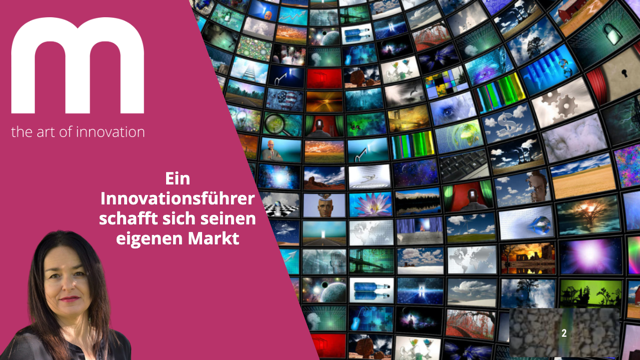-
Jan 27 2021 Health has a future
Health has become a value in itself: People associate their preservation with a sense of achievement and do not value it only when it is lacking. Since the 1990s, research into this topic has identified three types of health. What is behind these typologies and what are the long-term consequences for healthcare and the pharmaceutical sector?
Health in a change of values
“To live by health is to live miserably” – this saying, handed down from the Middle Ages, still seems to stand for a widespread attitude toward health. But for how much longer? Increasing prosperity, social advancement and the demands of a meritocracy have given health a new status. It is no longer valued only when it is lacking. A pattern that is valid at least for Central Europe shows that the relationship to health can be divided into three groups:
- The health nihilists
According to numerous studies conducted since the 1990s, they include about one-third of the adult population, which tends to be younger and male. They behave in a way that is detrimental to their health and have an above-average number of smokers. They have poor eating habits and do little sport.
- The health interventionists
They behave rationally and consciously; they consume many vitamins and freely available pharmaceutical products. Often, in rather poor health, they try to correct the consequences of previous excesses. This type affects only one in about seven mostly older mostly female adults.
- The health practitioners
They make up about half of the population and naturally behave healthily. They do not smoke, eat sensibly and do sports. They also exercise restraint in taking vitamins and pharmaceuticals that can be purchased without a prescription.
What does the future hold?
Obviously, health provides a sense of achievement that creates the incentive to nurture it as a value in itself. We may therefore assume that health practitioners will gain in importance and thus contribute to collective fitness for the future.
What does this mean for medical research and healthcare?
The focus on research and development in favor of diseases that cannot be overcome by healthy lifestyles alone continues to increase. In contrast, the continued social ostracism of health-damaging habits is likely to ultimately prove at least as powerful a sanction as the reluctance of insurance companies to pay for the consequences. It seems plausible to expect that the “classic” target groups for self-medication will tend to lose importance. Therefore, the pharmaceutical sector will have to find new solutions for dealing with the healthy customer segments that go beyond promotion.
-
Jan 26 2021 Excursion into the future
Hello!
My name is Monika Herrmann and I am a futurologist.
I am pleased to to accompany you on an excursion into the future.
A warm welcome!
Let’s imagine tomorrow – and actively shape it.
We explore the paths to the distant future. Desirable and undesirable futures await us in distant life worlds. We choose our future. Futures research supports us in making the right choice.
With Futurology to strategic success position as result
You may now be asking yourself: How does this work? How do we go about it?
Let’s look into the future as if through a funnel. 20, 30 years ahead. We futurologists call it a scenario funnel. It gets wider and wider the further away the futures under consideration are from the present.
The funnel represents a variety of paths to a variety of futures. We call our ideas about these futures scenarios. How do they come about?
The future begins with the starting position, the now: It is determined by our environment (including economic, political and cultural framework conditions), our company (our self-image, our values, our business success), our end customers and the relationships with all other important stakeholders (e.g. suppliers).
So how is the future “created”?
We now project the facts and figures of the initial situation into the future. To do this, we rely on trend analyses, the know-how of our customers and external expert knowledge.
We estimate the development of the most important influencing variables and show how they are based on our values.
How can we imagine the future now?
We shape the results into images of the future: Here as examplesTeam spirit – digital networking – home office – urbanization – social control – ecology. What do the images reveal to us? They express our desire to shape the future and not simply accept it as fate.
And what is the next step?
We combine the images into scenarios: Possible alternative futures between positive and negative extremes (symbolized by sunrise, zenith, sunset). They make visible the range between a life with extensive freedoms and one under strong control with extensive restriction of individual freedoms.
We opt for a realistic alternative that can be shaped from our understanding of values.
And shape the future through the strategy for success.
What does moderning stand for?
moderning stands for
- futurology
- innovation management
- Strategic success positions
- business excellence
- sustainability
The concrete benefit for our client
- He has a permanent advantage over his competitors due to his unerring focus on the needs of his (end) customers.
- As an innovation leader, he creates his own market
Thank you for your interest!
Your Monika Herrmann – Futurologist with a passion and a calling from Zurisch Switzerland
-
Jan 08 2021 Mission possible!
As a futurologist, my mission is clear, important and not impossible. It is to recognize opportunities in threats, to keep our finger on the pulse of change, to grow with it. And to find our values as drivers into the desired future.
Major changes usually begin almost imperceptibly. As a futurologist, my senses are sharpened and I support you in recognizing and correctly interpreting the soft signals of change so that you can actively shape your future.
Our values determine the way: Our individual and collective principles and attitudes. Honesty, a sense of responsibility, independence – whatever your values, they endure and outlast fads.
In my coaching sessions I convey the ability to recognize the signals of change and to use them correctly, aligned with your values, for sustainable future decisions.
Think beyond the here and now. Only those who recognize the opportunities in the crisis and generate innovative solutions from them will become active co-creators of their future!




